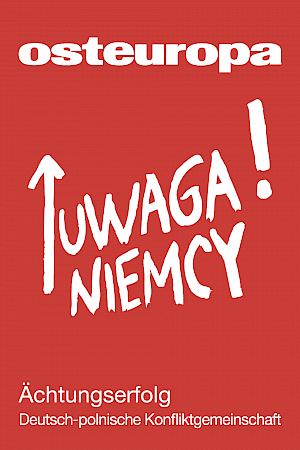After Reconciliation
Poles and Germans: A Relationship Diagnosis
Deutsche Fassung
Abstract
Every conversation between Germans and Poles is marked by how the visible and invisible asymmetries between the two countries are handled. The practices of German-Polish reconciliation and dialogue were social mechanisms for creating symbolic symmetry. Since Poland’s government has increasingly refused to continue these forms of dialogue, resentment has come to dominate. At the same time, the Polish right is struggling against its opponents at home and Germany’s power in the EU. Many Germans see in Kaczyńskis Poland a country that has gone backwards and is posing a threat to Europe’s future viability. With this form of classification, they at the same time sustain their own interpretive supremacy in the present. What was once the German-Polish dialogue has degenerated into a collective soliloquy of like-minded people. Thus, the once beneficial spaces of German-Polish dialogue have become echo chambers. This exacerbates the ongoing crisis between Poland and Germany.
(Osteuropa 9-10/2022, pp. 5–38)



